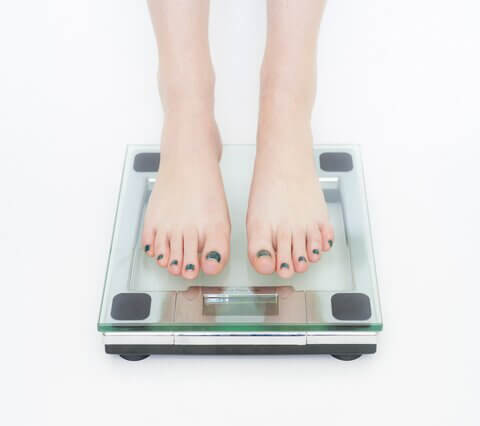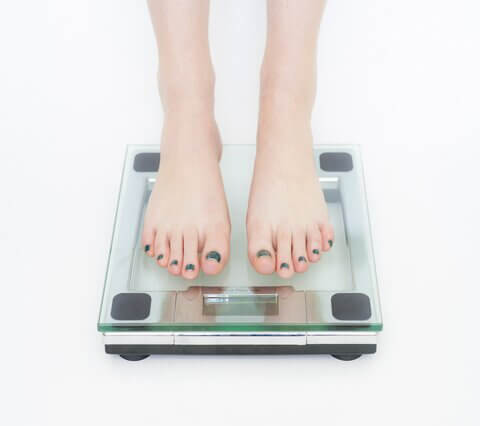

From the 13th to the 20th of January it was obesity awareness week. You might have noticed information posters around. VSM Pharmacy is also part of the NHS 12-week weight management programme.
The programme is designed to help you develop eating habits which are healthier coupled with advice about becoming more active. The programme is available on your computer, tablet, or phone.
If you want to take part in the scheme, then speak to a member of staff and they will help you to fill in the necessary paperwork for a referral. The pharmacy sends the paperwork through to the NHS and then if you’re accepted, you’ll be sent an email.
An obese person is someone that is very overweight and is carrying a lot of body fat. You can check to see if you are obese by measuring your BMI. You can do this by using the BMI healthy weight calculator available from the NHS.
The healthy weight calculator will give you your BMI reading and tell you whether or not you are obese. It will also advise you on how much weight you should try to lose initially. The NHS say that if you have a BMI of:
18.5 to 24.9 you are a healthy weight
25 to 29.9 means your overweight
30 to 39.9 you are obese
40 or above means that you are severely obese
You can use the BMI calculator as an indicator especially if you are carrying a lot of body fat and you are not heavy because you are muscular.
If you are overweight, you have a higher risk than normal of becoming diabetic or having heart disease. You are also at risk of cancer of the bowel or breast cancer, and you could have a stroke.
Being obese can also affect your general well-being. It could be that you suffer from low self-esteem or depression because of your weight.
The best way to reduce weight is to eat sensibly and give yourself time. Fad diets don’t work but cooking healthy meals from scratch will help you enormously. A good guide to follow is the NHS Eatwell Guide.
The guide shows you how much of each food type you should have on your plate. Basically, you should eat more vegetables and fruits, at least 5 a day. You can have fresh, frozen, or tinned vegetables and fresh or frozen fruit. Take care that tinned fruit doesn’t contain extra sugar.
Eat all food types. Starch carbohydrates like pasta bread and rice are good choices if you choose to eat wholegrain varieties or brown rice. Also eat Proteins which include beans, pulses, eggs, meat, and fish.
For calcium, you can drink milk and eat cheese and yoghurts, just limit yourself to the amount of these food types as they do contain sugar. Use unsaturated spread if you eat bread and use unsaturated oil for cooking. Olive oil is delicious on salads and vegetables.
Tyr and reduce or even cut out foods that are high in salt, fat and sugar. These include sauces like brown or tomato sauce, butter, chocolate, cakes, ice cream and biscuits. If you are used to eating these foods you will crave them at first, but it doesn’t take long for the cravings to diminish.
If you’re used to drinking sugary fizzy drinks swap to water, especially at mealtimes. You can add lemon or lime to a glass of water. Drink coffee and tea without sugar. Try and drink 6 to 8 glasses of liquid a day.
If you want an alcoholic drink limit yourself to one or two at the weekends and choose sugar-free mixers if you are drinking spirits. Wine is a good lower-calorie choice.
You don’t need to join a gym to increase your activity rate. Start off with a short walk and increase the distance bit by bit. Once you feel more confident you may want to take up swimming or go for a bike ride. Aim to do between 2 and 5 hours of exercise a week. It’s not too much to start with a daily walk that takes you half an hour, but if you can only do 15 minutes, do it because something is better than nothing.
Yes. If you are obese, you can ask your doctor to prescribe you weight loss medication. The treatment is in the form of pills which work by blocking some of the fat in your food from being absorbed. There are also weight loss injections which work by suppressing your appetite, so you don’t feel so hungry.
Talk to us here at VSM pharmacy if you would like a referral to the NHS weight management programme or if you need any help or advice about weight loss in general.

To provide the best experiences, we and our partners use technologies like cookies to store and/or access device information. Consenting to these technologies will allow us and our partners to process personal data such as browsing behavior or unique IDs on this site and show (non-) personalized ads. Not consenting or withdrawing consent, may adversely affect certain features and functions.
Click below to consent to the above or make granular choices. Your choices will be applied to this site only. You can change your settings at any time, including withdrawing your consent, by using the toggles on the Cookie Policy, or by clicking on the manage consent button at the bottom of the screen.